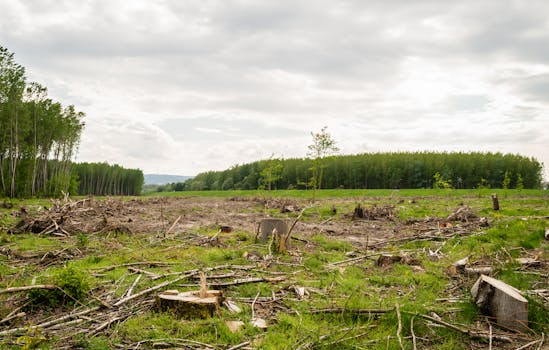
Introduction

The impact of climate change on global ecosystems is profound and far-reaching. As temperatures rise and weather patterns shift, the delicate balance of ecosystems is being disrupted. This article will delve into the various ways climate change is affecting biodiversity, habitats, and the overall health of the planet.
Biodiversity Loss

One of the most alarming consequences of climate change is the rapid loss of biodiversity. Species that cannot adapt quickly to changing conditions face extinction. For instance, polar bears rely on sea ice for hunting seals, their primary food source. As temperatures rise, the ice melts, jeopardizing their survival. Similarly, coral reefs, which host a myriad of marine life, are suffering from bleaching due to warmer waters.
Habitat Destruction

Climate change also leads to habitat destruction. Rising sea levels threaten coastal ecosystems, while shifting rainfall patterns can alter forests and grasslands. Wetlands, which serve as critical habitats for many species, are disappearing due to increased flooding and drought. This habitat destruction not only affects wildlife but also disrupts the services these ecosystems provide, such as clean water and carbon sequestration.
Irreversible Changes

The changes brought about by climate change may lead to irreversible consequences for ecosystems. Once a species goes extinct, it cannot return, and the loss of a single species can have a cascading effect on the entire ecosystem. For example, the decline of pollinators like bees can drastically affect plant reproduction, leading to food shortages for various animals and even humans. Furthermore, as ecosystems degrade, they become less resilient to further changes, creating a vicious cycle of decline.
Conclusion

In summary, the impact of climate change on global ecosystems is a pressing issue that requires immediate attention. From biodiversity loss to habitat destruction and potential irreversible changes, the effects are extensive and alarming. It is crucial for individuals, communities, and governments to take action to mitigate these impacts and protect our planet’s ecosystems for future generations.





